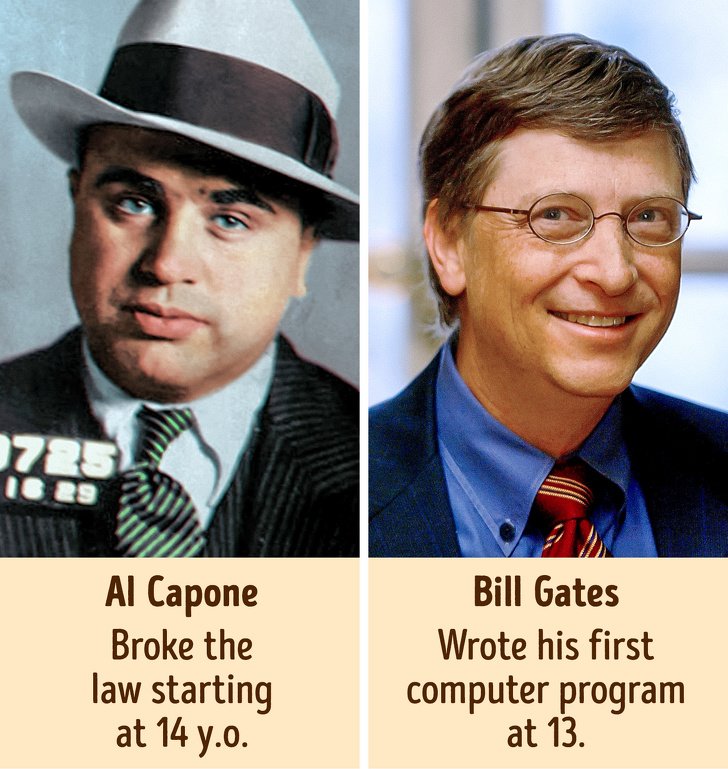Social scientists believe that our behaviors are deeply rooted in our being. We’re inclined to make decisions basing on two factors; when we think it's going to ultimately make our lives happier or sometimes because of popular opinion. Perhaps this is why some of us are drawn towards risking to buying expensive things because that is how our brain has been wired overtime.
There, however, are other social and biological factors that form a strong basis for human behaviors. While some may not necessarily be in line with your personal preferences or opinions it doesn’t discredit the information nevertheless. Below are different studies that show the different motivations of human actions.
1. Unpleasant people seem stronger and bigger than they are in reality

© Hulk / Universal Pictures / Marvel Entertainment -Via
According to a study by California based anthropologists Daniel M.T. Fessler and Colin Holbrook, some aspect of our human nature assesses our enemies based on size, a bigger enemy means a stronger hence dangerous one.These scientists conducted an interesting experiment. Out of the total participants, Some were tied down to heavy chairs to instill a sense of fear and caution but no harm was to come to them whatsoever. Then photos of aggressive men were shown to them and they were asked to assess how tall and strong these men were. It turns out that the helpless participants believed that the sizes of their potential enemies were much larger than those who were not tied down.
An unpleasant person might seem bigger to you than they are in reality because you are trying to avoid dealing with them. That’s why you would do everything in your power to avoid that individual.
2. We are inclined to believe different prophecies when we are in a bad mood.

© Harry Potter and the Prisoner of Azkaban / Warner Bros. -Via
Doctor Kathryn Greenaway from Australia conducted a rather exciting experiment. She divided her study subjects into 3 groups. The first group was asked to recall happy moments from their lives, the second one was asked to recall anything insignificant, and the third group was asked to recall something humiliating that had happened to them. Then all the participants were asked about different prophecies and extrasensory abilities.Those who had recalled unpleasant situations were more willing to believe in prophecies. Doctor Greenaway described her conclusions that A person is much more easily influenced if they are upset.
3. Money can really make you happy.

© The Wolf of Wall Street / Paramount Pictures -Via
A street saying goes, money can't buy you happiness but it can buy things that can definitely make you happy and scientist agree with it. Grant E. Donnelly conducted a research showing that wealth is really important. But when your income reaches a certain level, its further growth makes you feel less satisfied.The origin of wealth affects our happiness too. A lottery win or a marriage of convenience brings less happiness to you than the money you earned with your own work. Well, to find happiness money has a role to play
4. Expensive and impractical things you buy signify that you are poor.

© depositphotos -Via
Many people have different useless things at home which they bought and have never used, like kitchen appliances, a treadmill that gathers dust in the basement, All these stuff are of no use to them, but they still can’t find the courage to throw them out. perhaps it’s the whole essence of garage sales, trying to dispose of them off while earning a buck or two.The interesting fact is that people with upper to middle incomes prefer cars from a medium price range while people with below-average incomes choose prestigious and expensive cars that highlight their status.
Does it make sense to you? The point is A poor person wants to get rich in order to buy new and expensive toys. If they have some extra money they immediately buy something like a plasma TV or a new iPhone.
However, their wealth is short timed because when the money is over, they’ll have to limit themselves on everything to maintain their new status quo. The rich however have learned to never attach their achievements to expensive toys.
5. People prefer to avoid facts that don’t comply with their convictions.

© depositphotos -Via
People like to have debates on different topics whether it’s health reform or same-sex marriage. Whether its to sharpen their acuity or trying to pass out their ideologies, one thing remains common to all; most people won’t change their opinion even if there are undeniable facts? Different studies have proven that people refuse to admit evidence which doesn’t adhere to what they already believe.For instance, some people criticize vaccinations because they believe they’re the cause of autism. Even if facts prove that there is no connection between vaccinations and autism they won’t change their opinion and will still stand their ground. People are ready to ignore evidence and to stand up for their convictions in order to avoid the conclusions that are unpleasant to them.
6. A smoker knows that nicotine kills but they don’t quit smoking.

© Kung Fu Panda 2 / Paramount Pictures -Via
You are in a tight financial fix, but still, manage to buy another pair of boots despite having more than enough pairs at home. This scenario is similar to that of smokers who are aware of nicotine’s harmful effects but they still continue to smoke, These situations are all examples of cognitive dissonance It happens when our ideas, convictions, or behavior contradict one another.The problem is that when a person tries to get rid of cognitive dissonance they don’t look for truth, but try to find excuses for their bad habits like, “I smoke because my satisfaction overshadows the harm to my health,” or Other opinions are not considered
7. Sons decrease the probability of divorce.

© Gregorio T. Binuya / Everett Collection / EAST NEWS -Via
Economists Gordon B. Dahl and Enrico Moretti conducted research and discovered an interesting fact. Couples who have at least one son have a lesser risk for divorce than couples who have only daughters.The researchers say that the reason lies in our biological instincts. Since the value of a male partner is defined by his wealth, status, and power, a father has to make sure that his son will inherit these resources. This is especially true for rich families. However, this might not be plausible in the 21st century owing to the massive change in social roles of men and women.
8. Good-looking couples usually have daughters.

© AXELLE / BAUER-GRIFFIN / East News -Via
According to the Trivers hypothesis, wealthy parents have more sons, while less wealthy but more good-looking parents usually have daughters. This happens due to the fact that children inherit the looks, wealth, and social status of their parents.So, the gender of kids depends on what they can inherit from their parents.
If it’s physical attractiveness then it’s highly probable that a family will have a girl, while if it’s financial wealth then it’s highly probable that they’ll have a son. Still, this hypothesis doesn’t hold water. Howard Schultz, Jim Carrey, and Tom Cruise were born in really poor families but they have achieved success despite this fact. While Barack Obama and Vladimir Putin have only daughters which also contradicts this theory. So, be a good parent and don’t worry about your kid’s gender it doesn't mean anything.
9. People are more inclined to humiliate others if they have problems with self-confidence.

© Harry Potter and the Prisoner of Azkaban / Warner Bros. -Via
The desire to insult or humiliate another person roots in a problematic background- lack self-confidence and try to show their worth with brute force.At the same time, these people are sure that their negative attitude toward others has nothing to do with their self-awareness. A woman insulting another in a brawl, an abusive partner, an irresponsible father they all have the same problem, and it is with them.
10. Bill Gates and Paul McCartney have something in common with criminals.

Psychologist Satoshi Kanazawa conducted research which showed that age-genius curve (the distribution of age of musicians, writers, and artists at the time of the greatest contributions in their careers) is similar to the age distribution of criminals.
Bill Gates has become a successful businessman but he doesn’t make major breakthroughs any more.
J. D. Salinger didn’t publish anything for a period of almost 30 years.This behavior is explained by the fact that men want to impress others in their youth but this desire fades away when they age. This also happens more often when men get married and have children.





